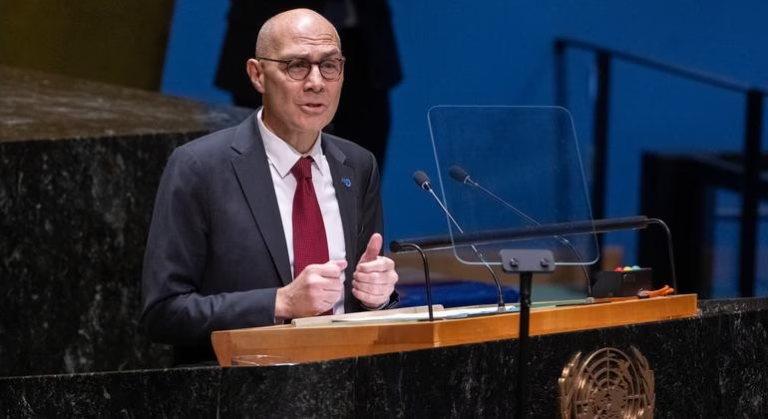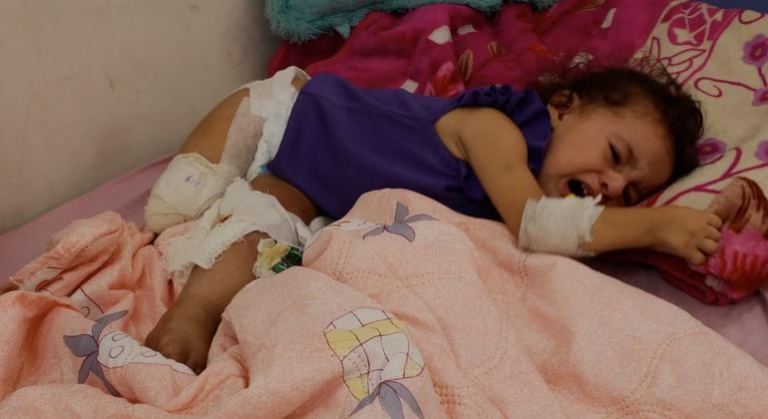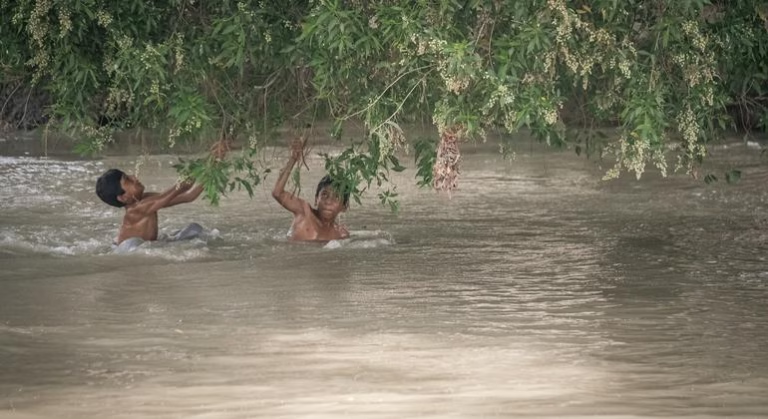On 9 February, forces associated with the M23 faction issued an ultimatum, instructing Tumusifu, her six children, and all other inhabitants of the Bulengo displacement camp to vacate the premises within 72 hours. This marked the second time in a span of weeks that these individuals were compelled to gather their belongings and abandon their temporary homes.
Just a month prior, they had been among the hundreds of thousands who retreated to refuge during the takeover of Goma by M23 forces, but Bulengo had ceased to be a sanctuary. Considered their only recourse, a return to the city region was fraught with peril.
Tumusifu, a mother with six dependents, confided her fears to UN aid workers at the time: “The thought of returning home terrifies us. Conflict persists in our village. Hunger grips us, with no resources to better our situation. Forced to linger by the roadside, uncertain about our next destination.”
The crisis continued to spiral out of control. After the seizure of Goma, M23 moved on to occupy Bukavu, the second-largest city in eastern Democratic Republic of Congo (DRC), and further towns, displacing yet more people.
The pervading insecurity extended to Goma itself, plagued by reports of crime and systematic violence, including break-ins and abductions. The UN peacekeeping mission for DRC, known as MONUSCO, characterized the security situation in territories held by M23 rebels as unstable and highly unpredictable.
‘Children are perishing from hunger’
Despite the risks, with limited alternatives, Tumusifu and her family returned to her village near Goma. The living conditions were dire. “Food is our most pressing need,” she noted. “Some children are slowly succumbing to starvation. Clinics remain shut, leaving us without medicine.”
Upon her departure, Francine got separated from her husband; they fled in different directions with their five and one children, respectively. Ever since, they have had no contact. “I’ve sought refuge in a school,” she said. “Our ordeal is tougher than life in the camps. The scarcity of food and the lack of water are the toughest challenges, with no access to a health centre.”
The looting of two WFP warehouses in Goma, leading to the theft of 70 percent food stock—approximately 9,000 metric tons—significantly hampered WFP’s ability to assist the population.
Humanitarian operations were severely disrupted by looting across the country, affecting over 450,000 individuals’ access to shelter, sustenance, or water. “It’s critical to secure a food supply,” stated Shelley Thakral, WFP spokesperson in DRC. “People are at their wits’ end.”
The collapse of markets was palpable. A recent WFP assessment reported a near 70 percent increase in the price of maize flour, a local staple, with rising costs for salt and peanut oil.
The logistical crisis was further compounded as Goma’s airport remained closed for over two weeks, cutting off an essential humanitarian supply line. WFP’s UNHAS faces a funding deficit that may result in service suspension by March’s end unless $33.1 million is raised.
Another grave concern is the increased vulnerability of women and girls, who face heightened risks of sexual violence and exploitation. Those seeking firewood and, in desperate cases, offering themselves for sexual services to feed their families, are especially impacted. Female-headed families are notably vulnerable.
Descending into such dire circumstances, noble aspirations of returning to pre-displacement life remain firm. “We won’t choose displacement over our homeland’s peace,” affirmed Tumusifu. “Although we have lost everything—our farms and livestock—the skills to rebuild are still within us.”
Source: https://news.un.org/feed/view/en/story/2025/02/1160486







